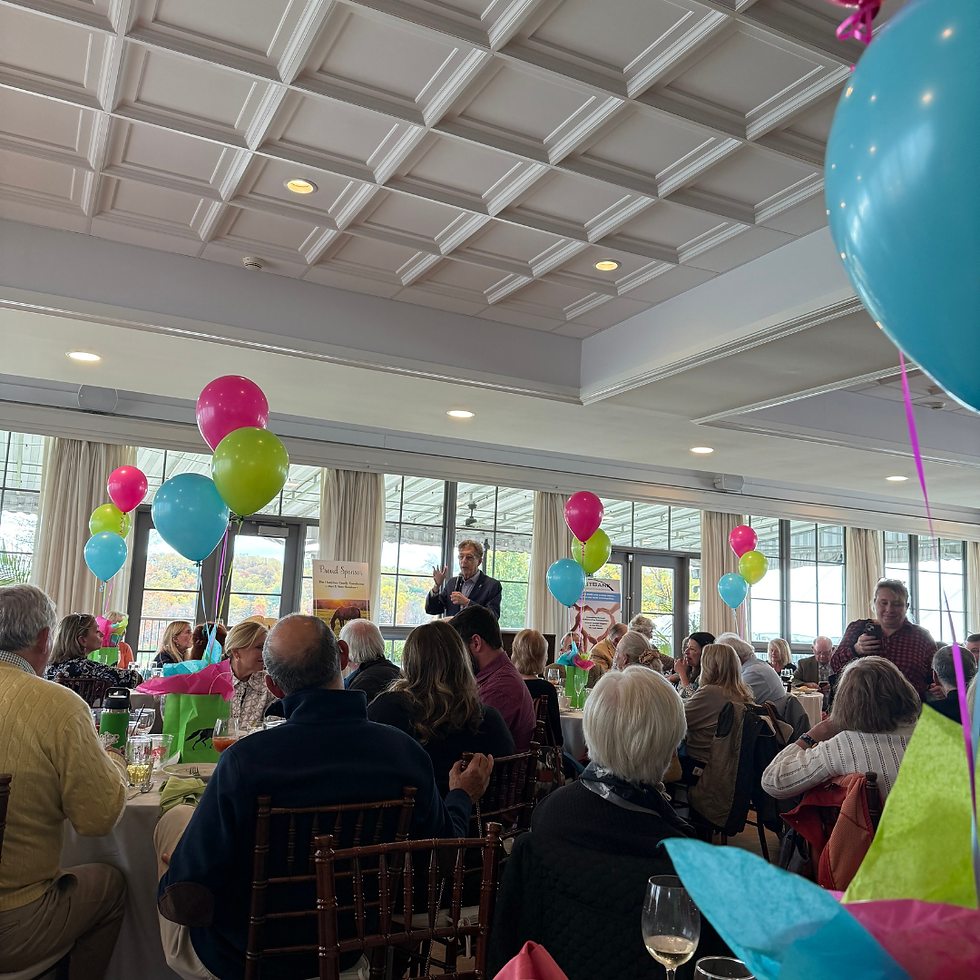Preparing Senior Horses for Fall Weather
- Ryerss Farm

- Sep 15, 2023
- 3 min read
As the warm days of summer fade and the crisp air of fall sets in, it's essential to ensure that our senior equine companions are well-prepared for the changing weather. Older horses require special attention and care to navigate autumn's challenges. In this blog post, we'll delve into the critical considerations for preparing senior horses for fall weather, covering everything from shelter and nutrition to joint health and comfort!

Assessing Shelter and Accommodations
Providing appropriate shelter becomes paramount as the temperatures drop and unpredictable weather patterns emerge. Here are some steps to consider:
Cozy Stabling: If your senior horse lives outdoors, consider providing access to a cozy, well-insulated shelter. A dry and comfortable environment helps them stay warm and protected from rain, wind, and fluctuating temperatures.
Blanketing: For horses that are clipped or have difficulty regulating their body temperature, consider using blankets. Choose blankets that are appropriate for the weather conditions, ensuring they fit well to prevent chafing or discomfort.
Ventilation: Ensure the shelter is adequately ventilated to prevent condensation and humidity buildup, which can lead to respiratory issues.
Adjusting Nutrition for Fall
Forage Quality and Quantity: As the grasses begin to lose their nutritional value, it's essential to monitor your senior horse's weight and condition. Gradually introduce higher-quality hay or other forage sources to compensate for the reduction in pasture nutrients.
Hydration: Cooler weather can lead to decreased water intake. Ensure your horse can access fresh, clean water to prevent dehydration and support overall health.
Supplements: Consult your veterinarian about necessary supplements, especially those targeting joint health, coat condition, and immune support. Fall is an excellent time to evaluate your horse's nutritional needs and adjust their diet accordingly.
Joint Health and Mobility
Regular Exercise: Fall is the perfect time to maintain gentle exercise routines for senior horses. Regular, low-impact movement helps support joint health and muscle tone. Consider daily walks or light groundwork to keep them limber and active.
Joint Supplements: Consult your veterinarian about incorporating joint supplements into your senior horse's diet. These supplements can provide the necessary nutrients to maintain joint flexibility and ease discomfort.
Warm-Up and Cool-Down: Before exercise, provide a thorough warm-up to loosen your horse's muscles and joints. After exercise, offer a gradual cool-down period to prevent stiffness.

Dental Care and Comfort
Dental Examinations: Fall is an excellent time for a dental examination. Ensuring your senior horse's teeth are in good condition allows for effective chewing and digestion, preventing weight loss and nutritional imbalances. Here at Ryerss Farm for Aged Equines, we understand the importance of dental visits, so we ensure our senior residents receive an annual examination. We even have the option for our beloved volunteers, donors, and visitors to sponsor a dental visit for their favorite horse and give the gift of a healthy smile!
Regular Floating: If your horse requires dental work, schedule regular dental floating to address any sharp points or dental issues that might hinder their ability to eat comfortably.
Parasite Control
Strategic Deworming: Continue to follow a targeted deworming schedule recommended by your veterinarian. Managing parasites is especially crucial for senior horses, as their immune systems may be less efficient at handling infestations.
Pasture Management: Fall is an opportune time to assess and manage your horse's grazing area. Regular manure removal and rotational grazing can help reduce parasite exposure.
Emotional Well-being
Social Interaction: Just like any horse, senior equines benefit from companionship. Ensure they have opportunities to interact with other horses, even if they're not turned out together. At Ryerss, we are open for visitors every single day of the year! You can learn more about your visit to the farm and what you can expect on our website.
Mental Stimulation: Engage your senior horse's mind through enrichment activities, such as puzzle feeders, clicker training, or short, positive training sessions. Mental engagement helps prevent boredom and promotes overall well-being.

Health Check and Vaccinations
Seasonal Health Check: Schedule a thorough health checkup with your veterinarian. This is an excellent opportunity to discuss concerns, update vaccinations, and review your senior horse's overall health status.
Vaccination Updates: Fall is an ideal time to review and update your senior horse's vaccination schedule, ensuring they're protected against seasonal threats.
As fall brings its unique challenges and beauty, preparing senior horses for the changing weather requires a combination of vigilance, care, and consideration. You can ensure that your senior equine companion enjoys a comfortable and healthy autumn by addressing their specific needs regarding shelter, nutrition, joint health, dental care, and emotional well-being. Remember, every horse is an individual, so tailor your preparations to suit your horse's unique requirements. Founded in 1888, Ryerss Farm is the country’s oldest non-profit organization of its kind, dedicated to providing a comfortable retirement for horses that faithfully served their former owners or who were rescued from abusive situations. We are passionate about our beloved residents, as they are never worked, go to auction, or used for experiments. Learn more about who we are and how you can help the farm!
.png)







Comments